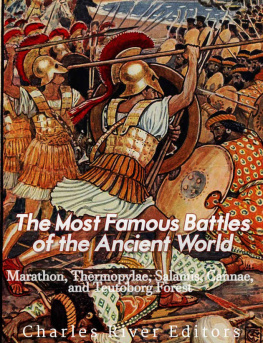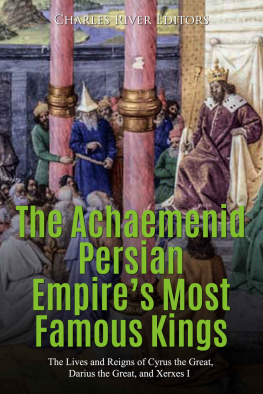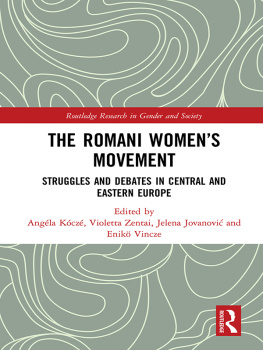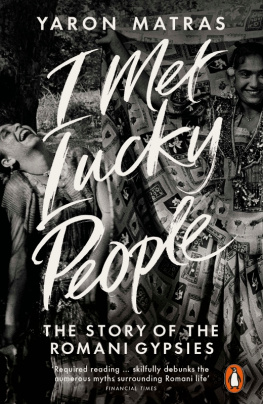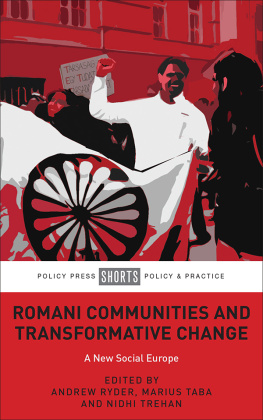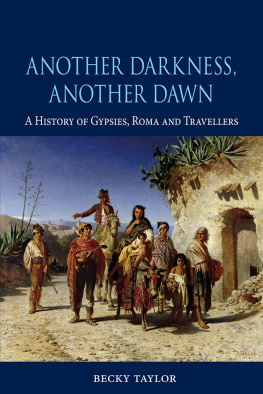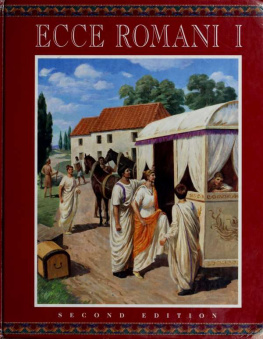Charles River Editors - The Roma: The History of the Romani People and the Controversial Persecutions of Them Across Europe
Here you can read online Charles River Editors - The Roma: The History of the Romani People and the Controversial Persecutions of Them Across Europe full text of the book (entire story) in english for free. Download pdf and epub, get meaning, cover and reviews about this ebook. year: 2019, publisher: Independently Published, genre: Home and family. Description of the work, (preface) as well as reviews are available. Best literature library LitArk.com created for fans of good reading and offers a wide selection of genres:
Romance novel
Science fiction
Adventure
Detective
Science
History
Home and family
Prose
Art
Politics
Computer
Non-fiction
Religion
Business
Children
Humor
Choose a favorite category and find really read worthwhile books. Enjoy immersion in the world of imagination, feel the emotions of the characters or learn something new for yourself, make an fascinating discovery.

- Book:The Roma: The History of the Romani People and the Controversial Persecutions of Them Across Europe
- Author:
- Publisher:Independently Published
- Genre:
- Year:2019
- Rating:4 / 5
- Favourites:Add to favourites
- Your mark:
The Roma: The History of the Romani People and the Controversial Persecutions of Them Across Europe: summary, description and annotation
We offer to read an annotation, description, summary or preface (depends on what the author of the book "The Roma: The History of the Romani People and the Controversial Persecutions of Them Across Europe" wrote himself). If you haven't found the necessary information about the book — write in the comments, we will try to find it.
*Includes a bibliography for further reading
We are all wanderers on this earth. Our hearts are full of wonder, and our souls are deep with dreams. - Old Romani Proverb
In the 21st century, cultural differences and individuality are often celebrated and protected across much of the world, and given societys conscientious awareness of such phenomena, it is therefore all the more surprising when considering the ignorance or indifference that the world at large exhibits towards the Romani people. Otherwise known as the Roma, or by their popular misnomer, the gypsies, the members of this highly undervalued and grossly misrepresented community have long been considered outcasts.
More often than not, the Romani are branded by even those who fancy themselves liberals as pikeys, gyppos, and gips. Theres also a regrettably common term, gypped, meaning to cheat, or swindle, which perpetuates the damaging stereotype that the Roma are dishonest nuisances and societal pests. Even well-intentioned attempts to shine the spotlight on the community have sometimes been counterproductive, for they are often reduced to no more than exotic, whimsical entertainers for the privileged. According to a shocking email authored by an anonymous whistleblower in 2012, the staff at the Laurieston Job Center in Glasgows Southside regularly referred to their Romani customers as gypos, scum, beggars, suicide bombers, thieves, and [pedophiles]. The whistleblower cited the staffs disturbing comments regarding an unnamed Romani woman, who had brought her two children along to the job center: The staff were all joking and saying they should sanction her for claiming whilst pimping out her kids. They then went on to make horrible remarks about the children, saying they were mongs.
On August 5th of the same year, over 700 far-right activists stormed the heavily Romani-populated Hungarian village of Devescer. Gypsy criminals, the mob chanted as they hurled rocks, paving stones, and other projectiles at the homes of their prey. We will set your homes on fire. You will burn inside your homes! The police, who were called to the scene, supposedly stood on the sidelines with their arms crossed, unwilling to intervene.
The dangerous blanket statements issued by various European politicians in recent years are also a cause for concern. In 1992, Bert Karlsson, a prominent member of the Swedish New Democracy Party, claimed that Gypsies [were] responsible for 90% of crime against senior citizens. In June 2008, the conservative Italian Prime Minister Silvio Berlusconi ordered the fingerprinting of the 150,000 Romani, children included, as a way to crack down on street crime. In France, political parties from either end of the spectrum have blamed the Romani for the nations problems, economic and otherwise. The Gypsies, asserted one interior minister, were responsible for one in every 10 crimes. Its fair to wonder why the abhorrent treatment of the Romani continues to slip below the radar of many social justice warriors, particularly in this age of globalization. This is all the more confounding given that many are aware of the ways the Roma have been persecuted over several centuries, most notoriously during the Holocaust.
The Roma: The History of the Romani People and the Controversial Persecutions of Them across Europe examines their history, from their origins to today. Along with pictures depicting important people, places, and events, you will learn about the Roma like never before.
Charles River Editors: author's other books
Who wrote The Roma: The History of the Romani People and the Controversial Persecutions of Them Across Europe? Find out the surname, the name of the author of the book and a list of all author's works by series.

